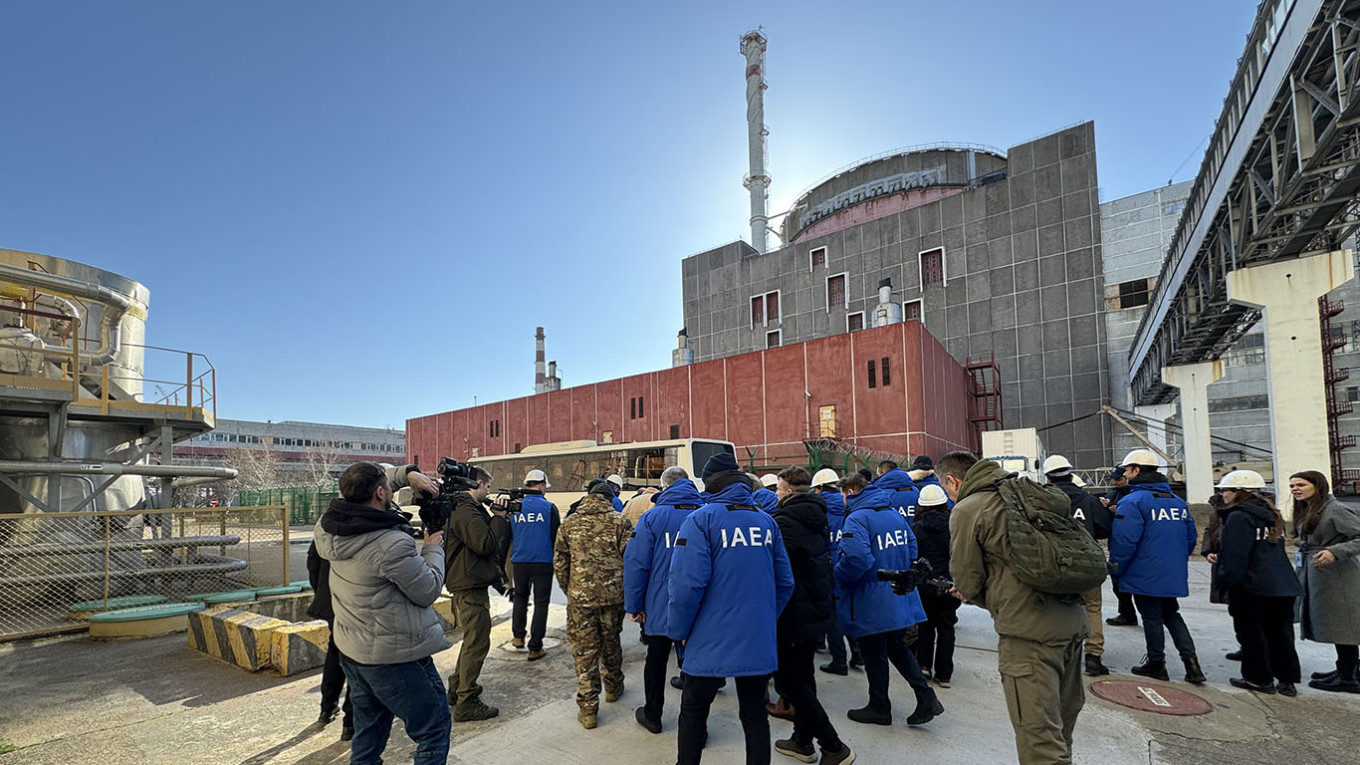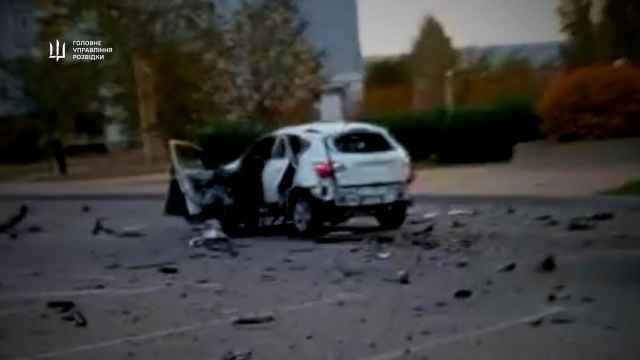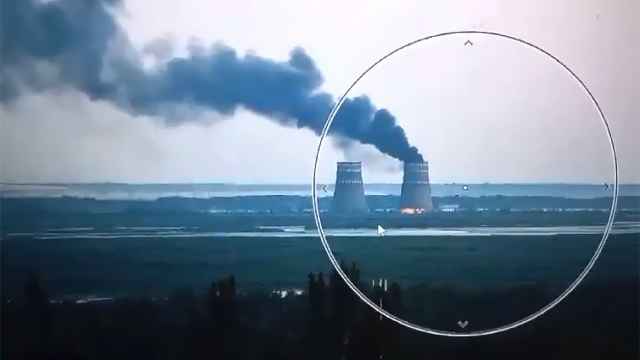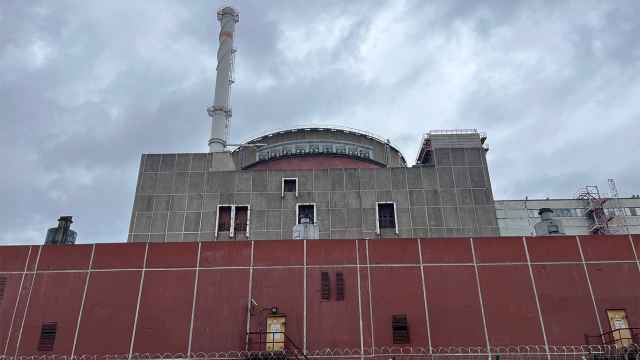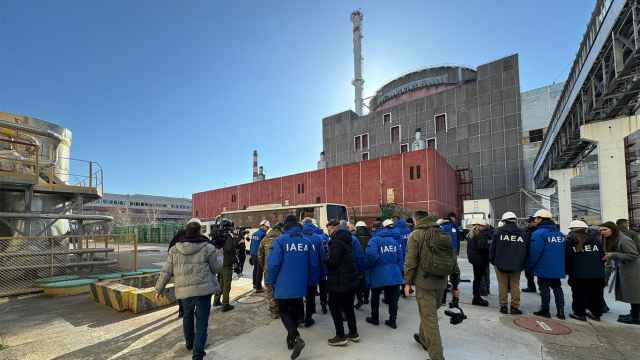There is no sign Russia is preparing to restart the Zaporizhzhia nuclear power plant in Ukraine, an official from the UN nuclear watchdog said on Thursday, after Ukraine complained about reports Russia was preparing to connect it to its grid.
Zaporizhzhia, which is held by Russia, is Europe's biggest nuclear power plant.
Its six reactors are shut down as war rages around it. The International Atomic Energy Agency has called for a ceasefire, after which measures to improve the water and external power supplies needed to cool nuclear fuel could be taken.
"Our teams continue to confirm there is no indication at the moment that there will be any active preparations for a restart of the plant now," the IAEA official said on condition of anonymity.
A Ukrainian official said on Wednesday his country had protested to the IAEA about reports that Russia is building power lines to connect the Zaporizhzhia plant to its own grid.
Yuriy Vitrenko, Ukraine's ambassador to the IAEA, told Ukrainian news agency Ukrinform that Kyiv sees any attempt by Russia to connect the occupied plant to its grid as a gross violation of international law and Ukrainian sovereignty.
On Tuesday, The New York Times cited a new Greenpeace report which found that Russia had been building more than 50 miles (80 kilometers) of power lines between the occupied Ukrainian cities of Mariupol and Berdiansk.
IAEA chief Rafael Grossi told Reuters in March it could be possible to restart one of the plant's six reactors within months of a lasting ceasefire that is still proving elusive.
That would, however, require increasing the plant's supplies of water and external power. Water has been a concern since the plant's biggest source, the nearby Kakhovka reservoir, was emptied when its dam was blown up in 2023.
That led to wells being dug at Zaporizhzhia, which provide enough water to cool nuclear fuel in the reactors while they are shut down but not enough to do so if they are restarted.
"The plant lost its main source of cooling water, so the whole system cannot work as it was originally designed," the IAEA official said.
"The consumption of water is orders of magnitude higher [when the plant is operating] compared to cold shutdown. We don't see any easy, quick fix for it," they added.
A Message from The Moscow Times:
Dear readers,
We are facing unprecedented challenges. Russia's Prosecutor General's Office has designated The Moscow Times as an "undesirable" organization, criminalizing our work and putting our staff at risk of prosecution. This follows our earlier unjust labeling as a "foreign agent."
These actions are direct attempts to silence independent journalism in Russia. The authorities claim our work "discredits the decisions of the Russian leadership." We see things differently: we strive to provide accurate, unbiased reporting on Russia.
We, the journalists of The Moscow Times, refuse to be silenced. But to continue our work, we need your help.
Your support, no matter how small, makes a world of difference. If you can, please support us monthly starting from just $2. It's quick to set up, and every contribution makes a significant impact.
By supporting The Moscow Times, you're defending open, independent journalism in the face of repression. Thank you for standing with us.
Remind me later.



